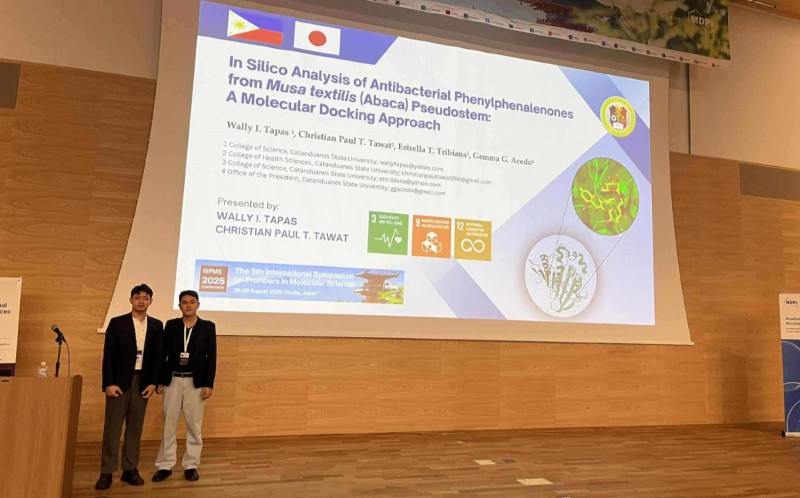CatSU joins Kyoto symposium with abaca drug research
SDG 3: Good Health and Well-being, SDG 9: Industry, Innovation, and Infrastructure, SDG 17: Partnerships for the Goals
August 30, 2025
Representing CatSU were Wally I. Tapas of the College of Science and Christian Paul T. Tawat of the College of Health Sciences, who presented the research “In Silico Analysis of Antibacterial Phenylphenalenones from Musa textilis (Abaca) Pseudostem: A Molecular Docking Approach.”
The study, co-authored with Professor Estrella T. Tribiana and CatSU President Dr. Gemma G. Acedo, was endorsed by the Research and Development Services (RDS) and the Center for International Relations and Continuing Professional Development Services (CIRCPDS) to CHED International Affairs Services (IAS).
The symposium, themed “Molecular Regulatory Mechanisms of Biological Function and Drug Discovery,” gathered scientists worldwide to explore advances in biological function, protein-based drug design, and AI-assisted molecular analysis. Selected papers from the event will be published in a special issue of the International Journal of Molecular Sciences (IJMS), an MDPI journal.
CatSU’s research highlights the potential of abaca (Musa textilis)—a crop deeply rooted in Catanduanes’ culture and economy—as a source of compounds with antibacterial properties.
This aligns with CatSU’s commitment to community-impact research and supports CHED’s ACHIEVE Agenda by strengthening internationalization strategies that not only improve global reputation but also contribute to positive change starting with research that creates impact at home.
